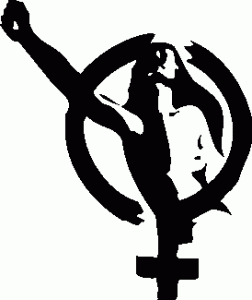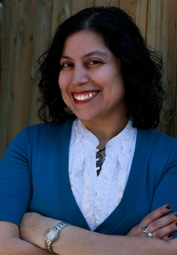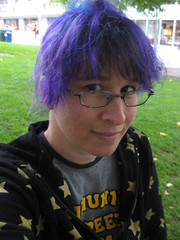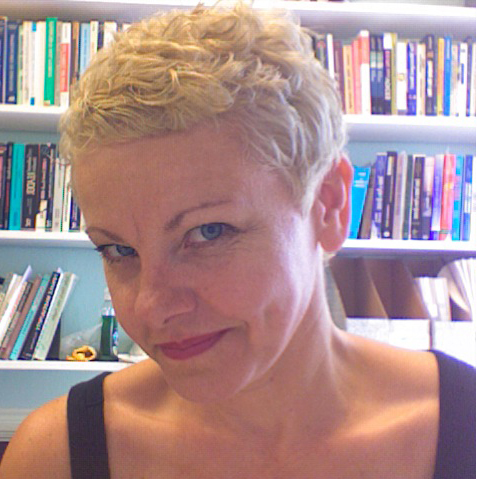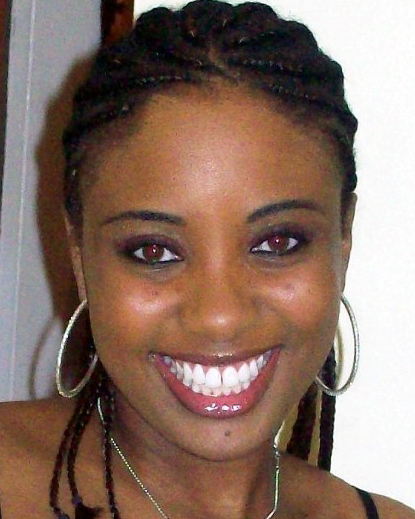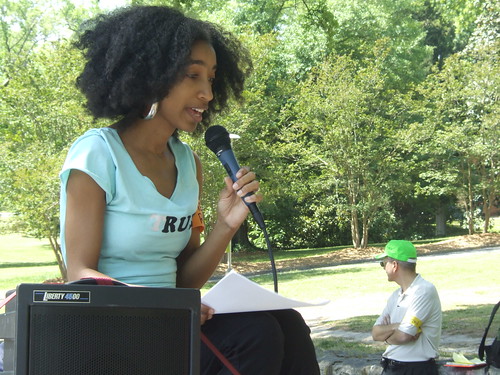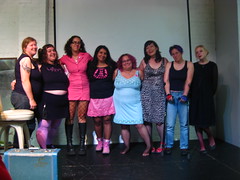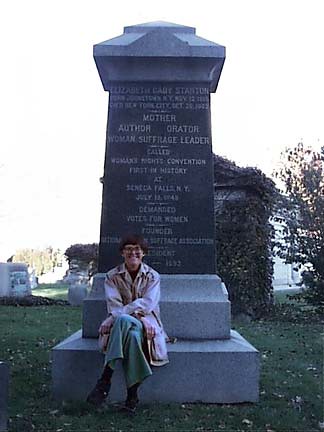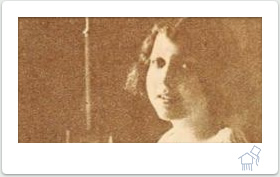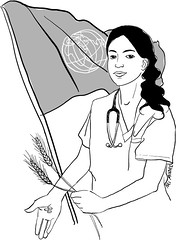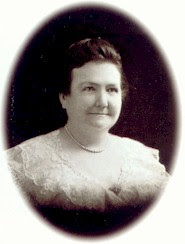Thank you!!! times a hundred to Nalo Hopkinson who just now took my rough live transcript and cleaned it up and emailed it back to me so I could post it. Thank you Nalo! You rock so hard.
***
That’s Not My Name: Beating Down Misogyny Online
Panelists: Cecily Walker (Cecily.info), Ann Friedman (Feministing), Amanda Marcotte (Pandagon.net), Samhita Mukhopadhyay (Feministing)
Cecily Walker: How do you think that new media and Internet technology, new tools, feminists can use these new media tools? Boosting feminist activism?
Samhita Mukhopadhyay: All of us have a tremendous amount of expertise using online tech. women’s community, grass root organizing community, new tools, support work happening on the ground. Strategic media campaigns, budding networks, social media to support our justice-minded goals. We use tools, though, that tend to represent the same stuff we’re fighting; tools produced in environments highly volatile for feminist voices. 50/50 good, problematic. Opportunity, brought up new issues.
Amanda Marcotte: Promise of blogging world many years ago, we could divorce ourselves from identity and just be pure voices, as the online and offline world merged into one. But you can’t communicate about your ideas without bringing your identity along. Pluses and minuses.
Ann Friedman: Divorcing identity is not a useful way to do activism. we don’t actually want to live out whatever early Internet ideal enables us to not have an identity, that hampers our activist goals.
Cecily: I wasn’t finding many black female queer voices online, it was important to me to blog under my own identity. given our circumstances today, how important is it to you to blog under you own identity.?
Amanda: I started blogging under my own id without really thinking of it, it didn’t seem to be a big deal. in retrospect it was good and it sets a good example if you can. a lot of women who are afraid to , the more of us who can do it, the less threatening it is for others.
Samhita: when i started we were excited if we got comments on a post. then 2 years into it we started getting threats. you then realize the threats mostly don’t translate to real live experiences. I also think for women online it’s an important statement to make. you’ll notice a lot of men have a blog under their own name. women tend to be in group blogs or under a different sort of brand name. So it’s important for your future to use your real name.
Friedman: women in the political blog world as pseudonymous and I’m thinking of Digby. But it’s not always a great idea to blog under your own name. It’s fraught. There’s a certain amount of privilege and risk you assume. Not all of us even thought about it. we didn’t consider the implications. Concrete advantages, consider Digby, they didn’t know she was a woman, so they didn’t pigeonhole her. ‘This is just a women’s issue’, etc. We can try to keep a voice but transcend some of those boxes.
Cecily: What are some of the key repercussions of online threats that moved into offline space? Paint us a picture of what that looks like.
Amanda: Not the John Edwards campaign. *laughter* I started off on a smaller blogspot blog. Was invited to join Pandagon by Jesse Taylor. there weren’t many high traffic liberal blogs that had any women at all. I honestly think my entrance on to the a list was a profound thing for many of the male commenter, mind you right wing male commenters who felt this was a boys’ club. It turned ugly really fast. Publishing my address, telling people to show up at my house and do violent sexual things to me. Calling my work and trying to get me fired. Nobody in the liberal blogosphere that i turned to had any experience whatsoever with this kind of thing and they didn’t believe it at first. he’d experienced viciousness and racism from commenters but he’d never seen anything cruel and violent as was directed at me. We had free comments, we had to turn that off and turn on registration for comments. I don’t know how serious the threats are but i have to assume they’re pretty serious if they’ve found out where i worked and called my boss.
Ann – Feministing has an appointed FBI agent where we send our threats. It’s that bad. Political blogging … I’d say that, we don’t control the space for (tapped?) as much as we do on Feministing. so it’s a more sexist space and a less feminist space. undoubtedly in terms of the private mail we get, via Feministing, that’s way worse. we can control the comments but not the private email.
Samhita: some of the worst misogyny I’ve experienced is on other blogs. this isn’t about how we feel threatened but about how it affects the community. we’ve been chastised a lot for not moderating every comment and not providing a safe enough space online for our readers. it’s not about protecting our own identity and feeling threatened but about how it makes our community feel. if you’re someone who’s experienced violent misogyny in your life there’s a moment of violence and violation that happens that makes you feel unsafe. we have to be clear about creating boundaries so our community can feel safe.
Ann: there’s a chilling effect when one woman, one person of color or queer person , is a target, then others are deterred from speaking in quite so open a manner. so the power structure online, that mirrors the real world…
Amanda: listening to auto admit case, on NPR, it’s a case law blog targeted very randomly two law students, two women. one man posted something about one of the women who had turned him down to go on a date. another woman got looped in. it got to the point of stds, slept with everyone, posted photos of them in their daily life with lurid rape fantasies, I’m sitting behind her in class, she’s at the gym right now, The defenders of the auto admit blog were going on about free speech. Can’t you understand that women also have the right to free speech and if you’re using yours to silence her then you’re not for free speech?
Cecily – at the library. heavily gendered space, 90% female environment. if we contribute to the web sites, we have to use our full names, our names on badges, one unsafe thing about a library you are in a female controlled space, you are in a culture that is heavily invested in keeping your individual name safe, but now that’s not true. i have to get people to feel more comfortable posting on the Internet, but it’s not going well, people don’t feel safe doing that, we get crank calls, complaints, we try to showcase all political viewpoints. spaces you might not define as feminist, we’re feeling some heavy pushback from the staff. how are we going to roll this process out?
Cecily: why is it important to look at gender and how it plays out online?
*laughter*
Samhita: we want to keep this panel to what it means to be feminist online. But because of these highly volatile experiences we’ve had it…. we’ve had different experiences online, male blogers don’t have that same thing. there’s never been a question, when i say something a little controversial, it’s not about the issues, it’s about whether i should have said something in the first place, you internalize that belief you constantly have to prove yourself.
A lot of our readers have experienced sexual violence and want to share those stories but don’t feel that they can. You have to make a lot of different negotiations to feel comfortable in it
Ann – women’s writing, the dynamics. One thing i do for myself is go through everything i write and strip out all the i thinks and i believes. because I’m writing it duh it’s what i think. writing more authoritatively. if y
ou’re going to pick me apart for this i might as well say it right out. Or, you can add 50 million caveats and end up not saying anything and not offending anyone. the Internet constantly needs to be fed. the evolution of women’s writing online, if i look at things i wrote in 2004, that’s largely in response to being hardened by this sort of stuff.
Amanda: i tend to say things very authoritatively and that’s always been a very hard things for me and many men who have multi year grudges against me. I’ve got into the habit of qualifying and adding the i think in.
Ann: but that doesn’t stop it. that’s not going to stop you from getting slammed on some blog full of dudes who hate you already!
Amanda: when i taught writing i would circle them in girls’ writing and tell them to take it out. it was always girls.
Cecily: lessons you’ve learned?
Samhita: Uh, that I’m a masochist
Cecily: I think you might have to unbox that one for us? lol
Samhita: yeah I’ll “unpack” that. ha. The content of what I’m writing and who i am writing it, it’s twofold . at least once a month i want to throw in the towel
Cecily: what keeps you from doing it?
Samhita: masochism? ha ha. It’s telling me that the level of importance of what we’re doing, for every piece of hate mail i get i get something else from Idaho saying they’ve never read something about sexism and racism and it’s changed their life in some . It’s not just for my own voice but it’s part of a movement of online feminism that we’re a movement and moving forward. Online solutions and best practices and you have to not care any more. you have to divorce yourself from caring about what people say about you, you have to go “well, you have 1/4 the readership lol” not the most humble way to think about it, but hey it helps me feel better. plus if I’m pissing off people who i wouldn’t like in real life,
Ann: 6 of us who write on Feministing and we can all each other up and go “i know people say mean shit all the time but this one really got to me!” and we all know how it feels. sometimes you have to decide what is a good public fight to have, vs. “you just want to call me ugly and tell me to make you a sandwich” i know it sounds ridiculous but it is hard to tell the difference sometimes! we need help in figuring that out, when to engage and when not to. you can engage with people who just don’t get it. But Feministing is on our terms. we don’t like it, we can delete your comment. we can respond to just part of what you’re saying and ignore the rest. or we can have a full blown back and forth, having a community to help decide and talk about how to engage has been crucial
Amanda: the purpose is to shut you up and if they don’t get what they want, they stop trying to shut you up, the more I don’t go away, and don’t shut up, the less harassment i get. just go out there and write every day and eventually they will give up. it’s not working, it’s straight up behavioral science.
Cecily: these tools that help us to get our voices out there, also hurt us. social networking tools.
Samhita: Twitter is a very useful tool. Communities, we have different community that comments on our youtube videos, twitter is another micro group environment and you get to know people a different way. That’s very powerful. I’ve had friends on my twitter feed who in the blogging worlds we have knock down “your mama” fights but on twitter I’m like “Oh you do yoga? i do yoga toooo!” lol. It’s less serious, less formal, commenting on Feministing can feel very formal.
Cecily: using these tools to get people to organize around a specific activist event?
Ann: When someone is getting attacked elsewhere, get into comments and post in support. Supportive conversation in public. Positive, or smackdown.
Cecily: Basic survival tips: solutions. if you’ve felt threatened, what do you do?
Samhita: Do not feel bad about banning people.
Amanda: Don’t feel guilty about it, some people are not there to engage. they shouldn’t be there.
Ann: You determine the levels of your own engagement, that’s self preservation. Free speech, free speech, my rights! whatever! go start your own blog! you do have free speech. Shockingly, no one has registered the url, getyourowneffingblog.com.
Cecily: libraries are public spaces, oh wait we can’t suppress these voices. what kinds of tools, for someone in that situation where the people in charge don’t understand it’s a safety issue an a respect my own house issue.
Amanda: Some men are allies. make alliances with men who will back you up can be very powerful. atrios alone has been useful in getting people to shut up being nasty about me. he’ll write a post saying they’re morons and he’s a man so people respect him and they shut up. that helps a lot. who has power in your community that you don’t have? exploit it a little. exploit other people’s privilege.
Ann: comments on huff po are useless, they’re a free for all. when you’re writing for bigger spaces it’s not that meaningful or helpful, it’s not my community responding to me it’s just like, crazytown. just ignore it. At feministing, people who read us regularly and have been for a long time, Samhita has a word for people who are super engaged
Samhita: minions
Ann: No! not that one! *laughter* Our regular readers are quicker than we are and say no that’s bull or email us and say please moderate this crazy comment. that is unbelievably helpful.
Samhita: creating a community people are bought into, invested into keeping a certain way. that is one of the best practices which has kept us afloat. it is crucial
Cecily: being a librarian i can’t do anything without reading about it in some academic journal. Germany researchers, algorithm to measure level of sexism in a comment. they had men tell jokes to a computer set up to “think” like a woman. the level of harassment the computer notices, correlated with the level of harassment real women experience online. women who identify as feminists get more harassment. if a woman mentioned herself or posted a photo her level of attractiveness had nothing to do with it. automated sexism detector!
Amanda: what we need a machine to back us up now!
Amanda: registration is the most useful way to control your space. disemvoweller is useful, button for it. Also, give some of your attack dogs moderation power. delete a comment and replace it with videos of bunnies hopping around. it makes people happy to see bunnies. *everyone laughs*
Cecily: what’s crazy bait?
Samhita: writing about any part of popular culture people feel invested in, fraternities, video games, if you want to get a lot of traffic then piss off the gamers, just kidding Latoya! *laughter* Race and gender, intersection. people feel very personally offended. Gentrification.
Amanda: Biggies are rape and domestic violence. if you write about rape or domestic violence in any form that’s crazy bait. Abortion, gotten better than it used to be. But if anyone tells a personal experience, that gets nutbars who will make personal threats directly against the person who got the abortion if anything has a racial aspect watch out it’s going to get really ugly.
Ann: if you’re writing about The Presidential Race or The Economy in the abstract without a personal level, people aren’t pissed off. Gentrification, when you get at where people live, it gets to them . Lipstick. what you wear. what people have personal experience with. they feel authoritative about it.
Cecily: Takeaway?
Samhita: Don’t feel threatened. it’s not about you. there’s some crazy people out there, it’s about them. keep going. young women reading, young women’s voices. the potential is very great right now. don’t give up.
Amanda: You’re not alone, you have friends. When under atta
ck you can feel very alone. Feels hard, you don’t want to “play the victim” but reach out and ask for support. Own what’s happening and ask for other people to care. they will often step up more than you would think initially.
Ann: Yeah. community. public, on blog, private space to process, that’s what it all comes down to for me. And, vast quantities of self esteem. A reservoir to draw on. Especially if you’re doing video blogging
Amanda: If you can learn to feed off the hate like … like trolls…
Ann: Youtube comments about how ugly, or how attractive. they have the same tone! stepping back and realizing they’re crazy!
Audience questions:
Kimberly: kimberlyblessing.com Feminist web dev : twitter is where i get problems. i speak to my community via twitter including feminist issues and that’s where i get attacked and it carries over to the real world because i work with the guys who followed m on twitter. i get angry and it affects me at work. i i start to internalize all of it. when there is something that important, what would be your other tips, i don’t have community, i work with almost all men. who do i go to? I don’t have any support or anyone more powerful to turn to. I just shut down and then go away for a while.
Ann: there must be other feminist web developers. Reach out to them.
Kimberly: Someone pulls you aside and says, hey that post you made this morning on twitter linking to that feminist thing online, you’re about to go into a big meeting with some vice president…
Amanda: what’s wrong with men who need to see women fail like this? pity them.
I’m Elisa from Blogher. (*applause, cheers*) There is disdain for business women and moms and women of color, dismissed, conservative women bloggers treated badly in other space, the misogyny itself is the problem, we need to see it everywhere, we can’t allow it, wherever we allow it to fester, it will continue to grow.
Q: Misogyny mommy bloggers, they have a more accepted space. women are more accepted in the blogosphere in “women’s blogs” networks, food, moms, travel. when we try to venture into economy, science, web dev, that’s where we are told to sit down and shut up. how can we continue to cross over?
Samhita: There is something different about “women” and “feminist” you are in a space you’re not supposed to be in , a political space. to be a woman in one of those fields, you have to fight with some best practices.
Amanda: any women who feel confident to feel about politics please do so more. write about the economy and politics. other women need to see that behavior modelled. know you’ll get a lot of blowback. eventually it helps.
Q: tendency to email privately? or privately and hateful? how do you draw the line?
Ann: sometimes our commenters have already talked back, engaged, other times it has a derailing effect.
Amanda: 90% of it is public, they are performing for other people
Monday night: Feministing party at Beerland on Red River & 7th- 8th!
